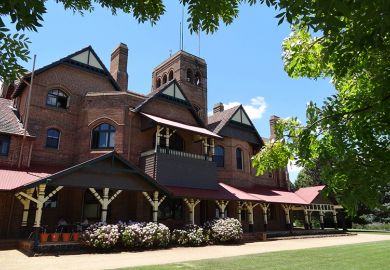The UK media’s continuing interest in the University of Warwick’s mishandling of rape threats against its students highlights the strains being placed on conventional disciplinary processes – and the reputational damage that can arise from getting it wrong.
According to The Times, Warwick has been forced to suspend its annual fundraising drive among its alumni after many of those contacted expressed anger at its decision earlier this year to reduce to one year the initial 10-year campus bans given to two male students who had repeatedly made rape threats against female peers on Facebook. It was subsequently announced that the men would not return, but two of the female students are considering legal action against the university over its handling of the scandal.
At the same time, the Office for Students said last month that while it welcomes action taken by English universities to tackle sexual violence and misconduct, there is far more to do. Subsequent discussions focused mainly on the need to encourage reporting, establish prevention programmes, recruit specialist staff and offer better leadership and governance. But while these are all important, what we are missing is any detailed discussion of alternative, potentially more transformative options for dealing with complaints.
One possibility is restorative justice. As part of a comprehensive approach to tackling sexual violence and misconduct, and in appropriate cases where the victim requests and the offender agrees, this may offer an additional form of justice for victims. It also has the potential to enhance prevention and rehabilitation.
Before going further, however, let’s be clear about what we mean. Restorative justice is not a generic form of “informal resolution”, of the kind well suited to student disputes over more minor issues, such as accommodation. Nor is it mediation, which is characterised by neutrality between the parties and an encouragement of compromise. Indeed, mediation is entirely inappropriate in cases of sexual violence and misconduct, which are not quarrels to be resolved by negotiation and a sharing of blame, but involve specific and serious harms caused by one person to another without their consent.
Restorative justice is predicated on an acknowledgement of responsibility by the accused. It is an umbrella term for a range of processes bringing together the offender, the victim and often other members of the community, with the aim of understanding the impact of the wrongdoing and resolving collectively how the accused can make amends to the victim and the wider community. It often takes the form of a face-to-face conference, facilitated by a trained practitioner with specialist expertise in sexual violence.
Many victims of sexual violence want some sort of redress but, understandably, do not want to go through the criminal justice system. They often speak of coming forwards out of concern that the offenders will harm others. They want an acknowledgement that they were wronged, and may also hope for some sort of (re)education of perpetrators.
Conventional university disciplinary processes, which were not designed for student-student complaints of sexual violence, are ill-equipped to meet these aspirations. Too often, they make matters worse, both for complainants and those accused. Lack of guidance and expertise around issues such as interviews, evidence, hearings and participation rights, as well as delays (often because of lack of resources), have left some victims traumatised.
In addition, these predominantly adversarial and individualised processes struggle with broader cultural concerns and attitudes, such as sexual harassment and misconduct among friendship groups or by sports teams. Such harms may be particularly suitable for restorative approaches.
The outcomes vary. They can include non-contact agreements, education and rehabilitation plans for offenders, and reparations such as time spent serving the community.
For victims, restorative justice may offer several advantages. It can encourage early admissions of guilt. It can provide recognition of their experiences. And it can give them greater voice and control, providing a meaningful forum to communicate the impact of those experiences.
Of course, restorative justice must only ever be part of a range of options, and can be additional to a disciplinary process, as well as an alternative. Nonetheless, there remains scepticism about its use in sexual violence cases. Understandably, it is feared that it may trivialise the offence, or that it might retraumatise victims or endanger their safety.
But while these risks are real, we must also recognise that both existing disciplinary processes and the criminal justice system are also very good at trivialising harms and instilling fear and trauma. Moreover, in the case of restorative justice, the risks can be reduced by specialist support and facilitation. All parties should be prepared for the face-to-face sessions by detailed psychological screening and, often, interventions.
Of course, this level of support doesn’t come cheap. Restorative justice is no quick fix; it requires commitment to working with experts to implement changes, all as part of a comprehensive approach to tackling sexual violence. And since it is likely to only be taken up by small numbers, it does not remove the urgency of reforming conventional disciplinary processes.
But if we are to be truly attentive to the interests of victims, and if we are to hold offenders to account in more educative and rehabilitative ways, universities must be open to such potentially transformative approaches.
Clare McGlynn is a professor of law at Durham University and was a member of the university’s sexual violence task force. The views expressed here are her own.
Register to continue
Why register?
- Registration is free and only takes a moment
- Once registered, you can read 3 articles a month
- Sign up for our newsletter
Subscribe
Or subscribe for unlimited access to:
- Unlimited access to news, views, insights & reviews
- Digital editions
- Digital access to THE’s university and college rankings analysis
Already registered or a current subscriber?








